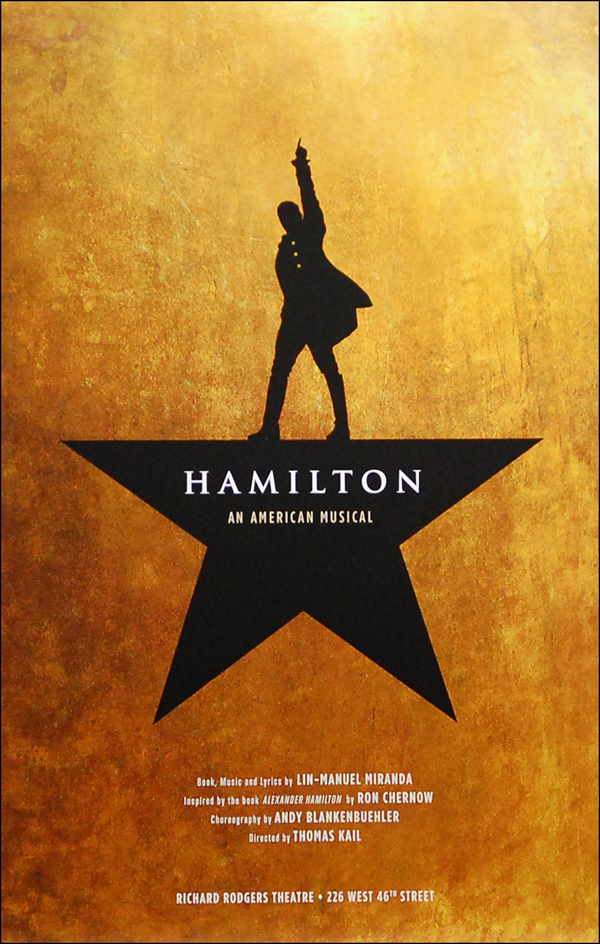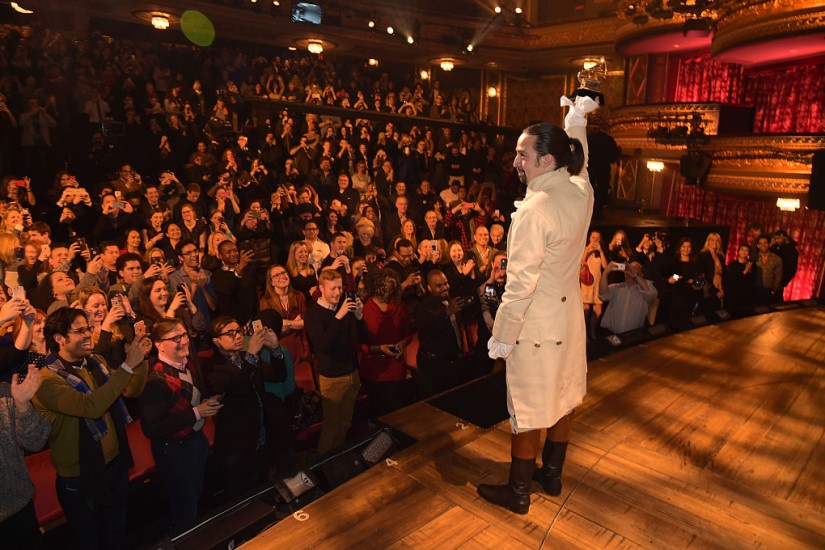The representation of slavery in the musical is one of the things that bothered you the most about Hamilton. What is your argument about the way that slavery is seen or not seen?
My argument is basically that the play does a lot of this thing that we call “Founders Chic” as a representational strategy. This is a way that writers of popular history (and some academic historians) represent the founders as relatable, cool guys. Founders Chic tends to really downplay the involvement of the Founding Fathers in slavery, and this play does that 100 percent. Yes, sure, it mentions slavery a couple of times, but it’s twice mentioned in the context of just slavery existing and Alexander Hamilton being opposed to it. And then a couple times it’s mentioned in the context of abolition specifically, and Alexander Hamilton supporting that. So the 12th line of the play where it’s mentioned, “he struggled and kept his guard up” is the line right after talking about slaves being slaughtered and carted away. But we have no idea what Alexander Hamilton’s attitude toward slavery was when he was a boy growing up in the Caribbean. He worked on a slave ship. I mean, chances are probably pretty high that he was in favor of it; that was his livelihood. So few white people were opposed to slavery, especially white people in the Caribbean. It’s kind of bonkers to suggest that he was somehow suffering and feeling like slavery was an injustice at that time. There’s no historical evidence to back that up. So that’s one example of them presenting it as if Oh yeah, he was around slavery, but he hated it, and we don’t actually know that that’s the case. John Laurens, sure, was very unusual for being anti-slavery; it’s not really clear that Alexander Hamilton was particularly anti-slavery.
The Schuyler family had slaves.
Oh yeah! They were huge slave owners. And one of the points Ishmael Reed made that I loved is that for Elizabeth Schuyler to be a Kim Kardashian of her era involved several slaves preparing her to be so gorgeous at that ball where Hamilton met her. And to say that he didn’t own any slaves? He was fucking poor! Before the Revolution, the dude had no money, so of course he didn’t own slaves. It wasn’t a moral achievement, just an economic reality. Later on, yeah, he does seem to have been anti-slavery, in his involvement with the New York Manumission Society and things like that, so the fact that he didn’t then purchase slaves is one thing. It’s also definitely documented that he used slaves, that he employed slaves. It was really common for people who didn’t own slaves outright to rent slaves.

